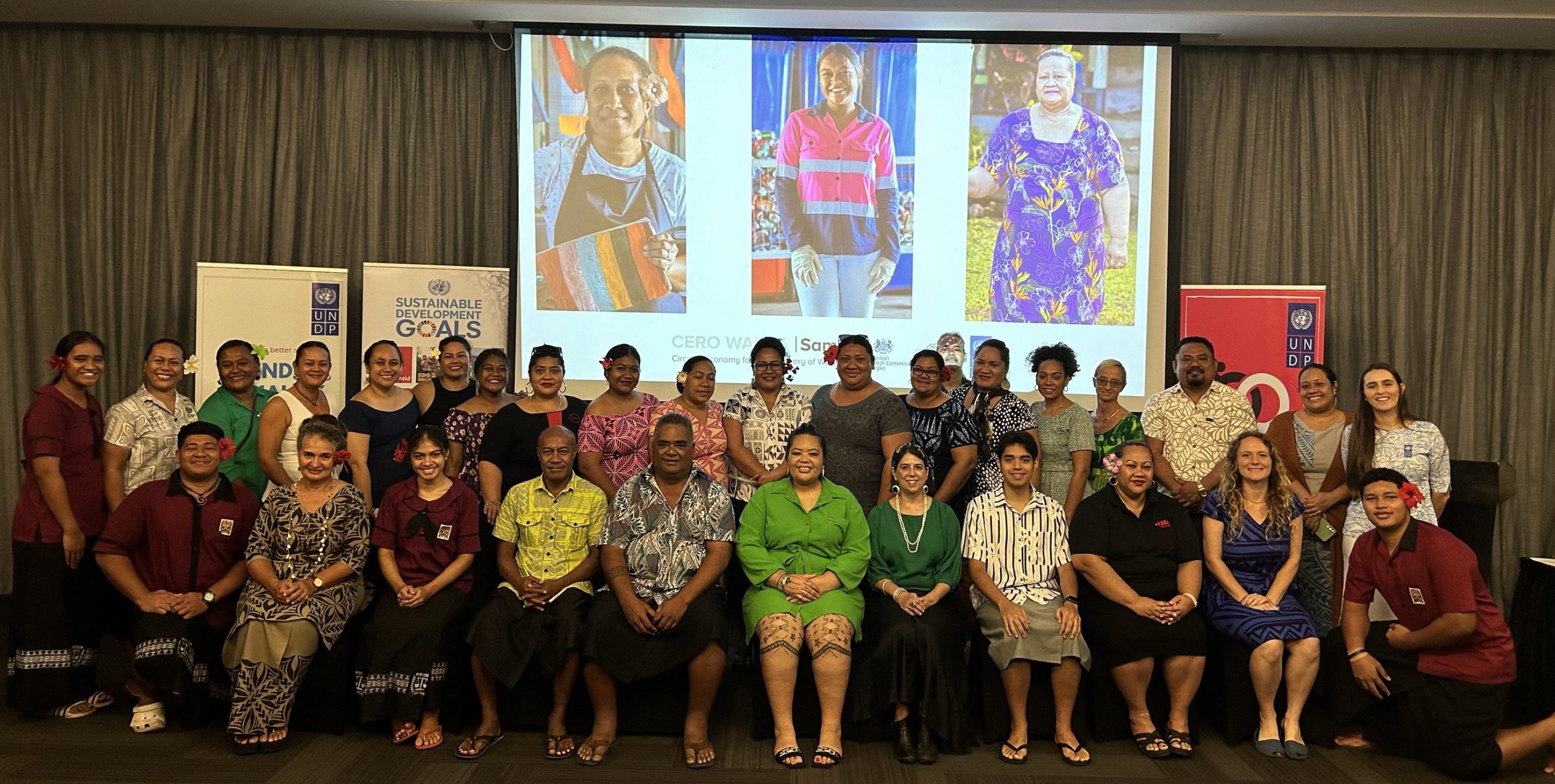Strengthening organizational structures, cultures and capacities to
systematically mainstream principles of inclusion, diversity, equity and access in the
workplace, was the focus of a recent workshop for Samoa’s waste recyclers.
The workshop was held on May 22 nd -24 th by the United Nations Development Programme
(UNDP), under the Circular Economy for the Recovery of Waste (CERO) Transition Project,
funded by the United Kingdom’s Foreign, Commonwealth and Development Office (FCDO)
via the British High Commission in Samoa.
It addressed barriers faced by women and youth in the waste management sector in
Samoa.
One of them is the unequal representation of men and women in the sector, but there is
now a growing recognition of the important role women play. By promoting gender equality
in waste management, women are empowered to take on leadership roles, access training
and education, and contribute their unique perspectives to decision-making processes.
“UNDP, in solidarity with its partners in the private and civil society sector, emphasize the
critical need to address intersectional barriers, biases and stigma in the waste management
sector as the country transitions to a circular economy. Failure to do so undermines the full
potential of harnessing socio-economic opportunities and benefits associated with such a
model. It also contributes to perpetuating the exclusion of marginalized voices and
experiences to inform sustainable practices for circular resource management,” said UNDP
Deputy Resident Representative, Verena Linneweber.
More than 30 workers from the private sector and civil society took part. They said an
inclusive approach in the design and implementation of waste management strategies is
urgently needed to counter instances of misrepresentation, inequity, and inequality faced
by key players in the waste management sector. This can lead to more innovative and
effective approaches to recycling, waste reduction and circularity.
Feedback from this engagement will be integrated into the review of the national waste
management strategy for Samoa.
“Stigma and bias are prominent in Samoa for women-led waste recycling organisations; a
reality we often deal with, and which acts as a setback within the industry,” said Marina Keil,
President of the Samoa Recycling and Waste Management Association (SRWMA).
She added that the waste management industry in Samoa is struggling to entice people to
view the management of waste as a duty of care for our environment, and for a healthy
Samoa. “Our main drive now is to mainstream the operationalization of our organisations to
champion inclusion, diversity, equity and access approaches in our work, to promote
effective social corporate responsibilities and to shift to a mindset that waste is wealth and
should not be looked down on.”
Patricia Netzler, Programme Manager for the Samoa and Tokelau Association of Recyclers
(STAR), said her organisation is becoming more conscious of how they can transition to
IDEA (inclusion, diversity, equity and access) concepts to harness corporate social
responsibilities, gender equality, disability and social inclusion aspects of the work they do
with their partners, stakeholders and membership to strengthen their daily operations and
regulations.
One of the key outcomes of the engagement is the support UNDP will be offering to
SWRMA, STAR and the wider private sector in the area of waste management in Samoa.
This will strengthen organisational credibility through best practices that champion
corporate social responsibility, and a gender-equal approach to workplaces that promotes
the rights of both men and women to health and safety, and appropriate working
conditions.
In addition, the Women of Waste (WOW) global network will be offering peer to peer
learning for waste recyclers in Samoa, to support the realisation of women’s rights in their
roles in the waste management sector. It is hoped that Communities of Practices (CoPs) are
promoted to continue the momentum and amplify local waste management initiatives to
impact global waste management movements.
Waste recyclers in Samoa have a unique opportunity to drive the transition from a linear
economy to a circular one with strengthened capacities, socio-economic inclusiveness and
a gendered lens, with strategic partners in place to share best practices. By championing
this approach, it will create a more sustainable and prosperous future for all.

